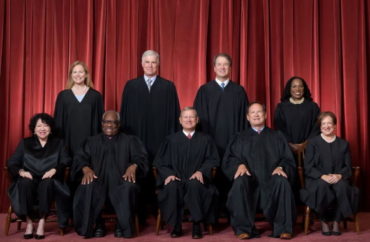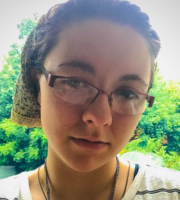
Education reform group questions if University of Maryland campuses are complying with affirmative action ban
The University of Maryland needs to review their “diversity, equity, and inclusion” programs to ensure compliance with federal law, according to a higher education reform group.
The Maryland affiliate of the National Association of Scholars flagged potentially problematic programs in a 67-page report.
The analysis is based on mandatory DEI documents provided to the board of regents by each institution.
“The DEI program descriptions raise issues of equal protection under the Fourteenth Amendment and of compelled speech under the First Amendment, which bind all public campuses,” the report states.
“The campus reports reviewed here raise two major kinds of constitutional issues,” a news release states. “They show that Maryland public campuses require employee adherence to certain kinds of ideological or political positions and opinions.”
“They are also using racial, ethnic, and in some cases gender classifications to benefit some groups and disadvantage other groups,” Maryland Association of Scholars wrote in its news release.
The advocacy group’s report is based on documents submitted in 2023, prior to the Supreme Court decision in Students for Fair Admissions v. Harvard, which bans affirmative action in higher education.
The Maryland Association of Scholars president provided further answers during a phone interview with The College Fix.
“The Maryland legislature passed a requirement that all public campuses have programs focused on cultural diversity, a term that is ambiguous,” President George La Noue told The Fix, saying the issues go back to 2008. That year, Maryland passed a law requiring public universities to “have a ‘cultural diversity’ plan,” according to the report.
Prior to the Supreme Court’s ban, DEI programs were “focused on underrepresentation of not only current students, but groups of students who were traditionally underrepresented,” La Noue said.
“Underrepresented” is a problematic term according to the Maryland Association of Scholars.
The focus on “underrepresentation” implies the unspoken idea of “overrepresented” groups, according to the report.
“This is a national problem,” La Noue told The Fix. His main concern is whether universities should continue to “divide students, faculty and staff into groups of underrepresented and overrepresented,” and base benefits, admissions, and hires on that data.
The group has not received a response yet from the board of regents. The attorney general’s office has also not responded to the Maryland Association of Scholars.
Vice President for Legal Affairs & General Counsel Jay Rosselló also did not respond to two emailed inquiries from The Fix sent in the past week.
The Fix asked how the university plans to comply with the 2023 Supreme Court decision banning affirmative action.
Soon after the Supreme Court decision, President Darryll Pines said: “Race has never been the determining factor here at the University of Maryland.”
MORE: Native American tribe demands UC Berkeley return artifacts ‘held captive’
“Instead, it was one of 26 unique factors that we have considered in undergraduate admissions,” Pines wrote.
The Fix also asked Roselló what weight race played in admissions.
The Maryland Association of Scholars said it will have further information on next steps in the coming weeks.
The report also says that racial demographics at the twelve public universities in the UMD system may be skewed by the presence of four historically black colleges and universities.
Those HBCUs may draw black students away from other universities.
“The overrepresentation of black students and faculty at Maryland HBCUs may contribute to their underrepresentation at non-HBCUs,” Maryland Association of Scholars wrote in its report. “In this process, the actual diversity of individuals is subordinated to their placement in the categories of underrepresented and, by implication, overrepresented.”
“If accompanied by critical race theory, individuals are also categorized as oppressors and oppressed,” the report stated.
The university has rewritten some scholarships facing media attention.
The Fix has previously reported on a pharmacy school scholarship at UMD’s Baltimore campus.
Following inquiries, the school rewrote the scholarship to eliminate language that excluded white applicants.
MORE: Failed former Chicago Mayor Lori Lightfoot gets $60,000 to teach public policy course
IMAGE: Supreme Court of the United States
Like The College Fix on Facebook / Follow us on Twitter






Please join the conversation about our stories on Facebook, Twitter, Instagram, Reddit, MeWe, Rumble, Gab, Minds and Gettr.